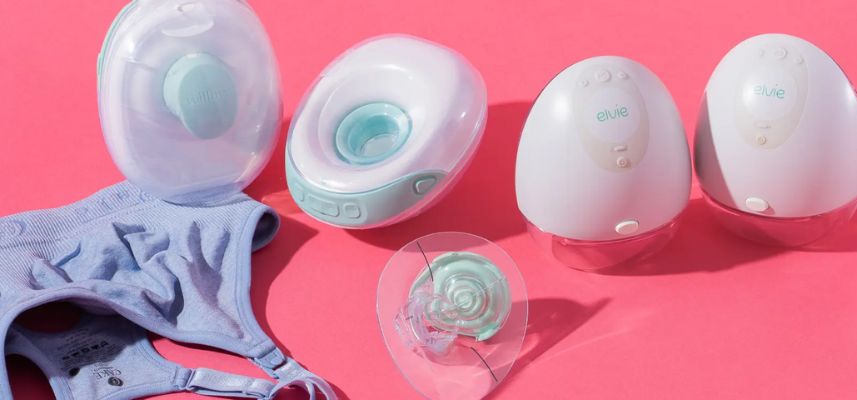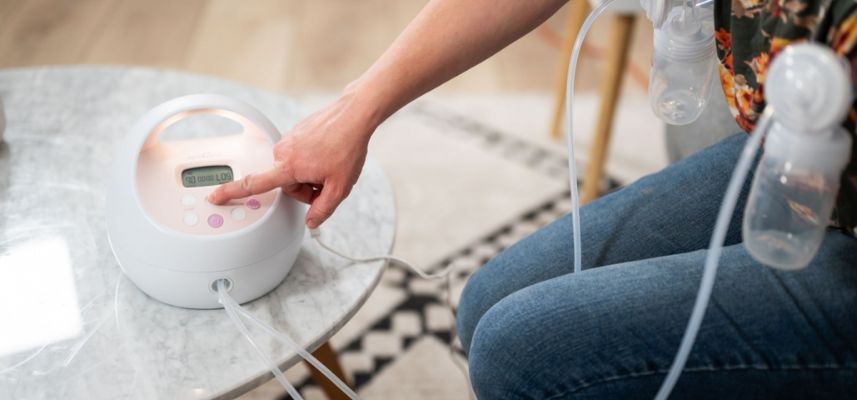Mineral-based sunscreens with zinc oxide or titanium dioxide are the safest choice during pregnancy. Avoid chemical sunscreen ingredients like oxybenzone, avobenzone, and octinoxate, which can be absorbed into your bloodstream and potentially affect your developing baby.
If you're expecting and wondering about sunscreen safety, you're asking the right questions! Your skin becomes more sensitive during pregnancy due to hormonal changes, making sun protection more important than ever. And while sunscreen is considered safe for pregnancy, this guide will help you make informed decisions about what to buy and how to take care of your skin during this time.
What's Inside This Guide:
-
Safe vs. unsafe sunscreen ingredients - What to look for and what to avoid
-
How to identify pregnancy-safe sunscreen - Reading labels like a pro
-
Best practices for application - SPF protection that actually works
-
Expert-recommended products - Top choices from our team


How Do I Know If My Sunscreen Is Pregnancy Safe?
The easiest way to identify pregnancy-safe sunscreen is to check the ingredients list for mineral-based active ingredients. According to the Food and Drug Administration (FDA), mineral sunscreens containing zinc oxide or titanium dioxide are considered safe for pregnant people.
These ingredients sit on top of your skin and create a physical barrier that reflects the sun's harmful rays, rather than being absorbed into your bloodstream like chemical ingredients. It is important to note that while the FDA found evidence that some sunscreen ingredients may be absorbed into the body, this fact does not mean those ingredients are considered unsafe.
Look for these ingredients when selecting a sunscreen:
-
Zinc oxide
-
Titanium dioxide
-
Vitamin E
-
Shea butter
Check that the sunscreen is:
-
Broad spectrum (protects against both UVB and UVA rays)
-
Water resistant
-
At least SPF 30 or higher for effective protection
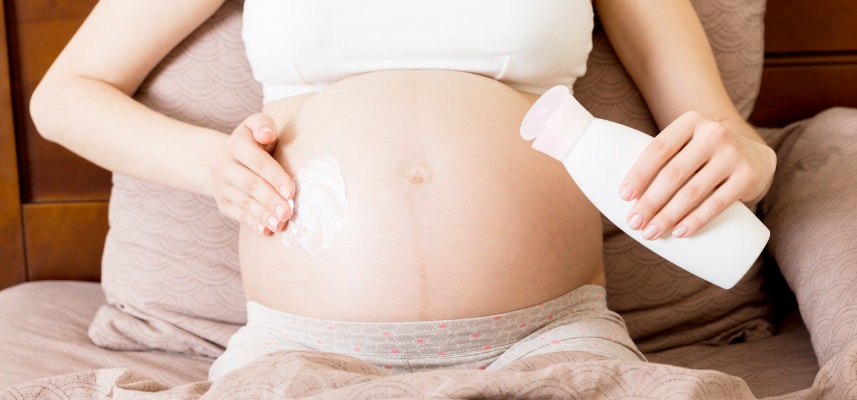

What Sunscreen Filters Should Be Avoided During Pregnancy?
A study conducted by Northeastern University found parabens commonly found in sunscreen may increase the risk of high blood pressure during pregnancy, potentially impacting the health of both mom and baby. And, as mentioned above, some studies argue chemical sunscreen ingredients can penetrate your skin and enter your bloodstream, potentially affecting your developing baby. The American College of Obstetricians and Gynecologists (ACOG) recommends avoiding the following chemical ingredients during your entire pregnancy:
-
Oxybenzone
-
Triclosan
-
Phthalates
-
Parabens
-
Synthetic fragrances
Which Sunscreen Was Banned?
While not completely banned, oxybenzone faces the most scrutiny due to its hormone-disrupting properties and environmental impact on coral reefs. Hawaii actually banned sunscreens containing oxybenzone and octinoxate to protect their coral reefs and marine life.
It's also worth noting some filters are only available to certain markets, meaning sunscreens from the United States might not include the same ingredients or meet the standards of those available in Europe or Asia.


Which Sunscreen Should I Avoid?
Beyond specific ingredients, avoid sunscreens that:
-
Contain the chemical filters mentioned above
-
Are designed for tanning (these don't provide adequate protection)
-
Have expired or have an unpleasant look or odor
-
Contain artificial fragrances that may irritate sensitive pregnancy skin
-
Are labeled as "broad spectrum" but don't list zinc oxide or titanium dioxide
Our medical director Dr. Jessica Madden, a board-certified pediatrician and neonatologist, recommends sticking with mineral-based, broad-spectrum sunscreens throughout your pregnancy. She says, "They provide excellent protection without the potential risks of chemical absorption."
Best Pregnancy-Safe Sunscreen Practices
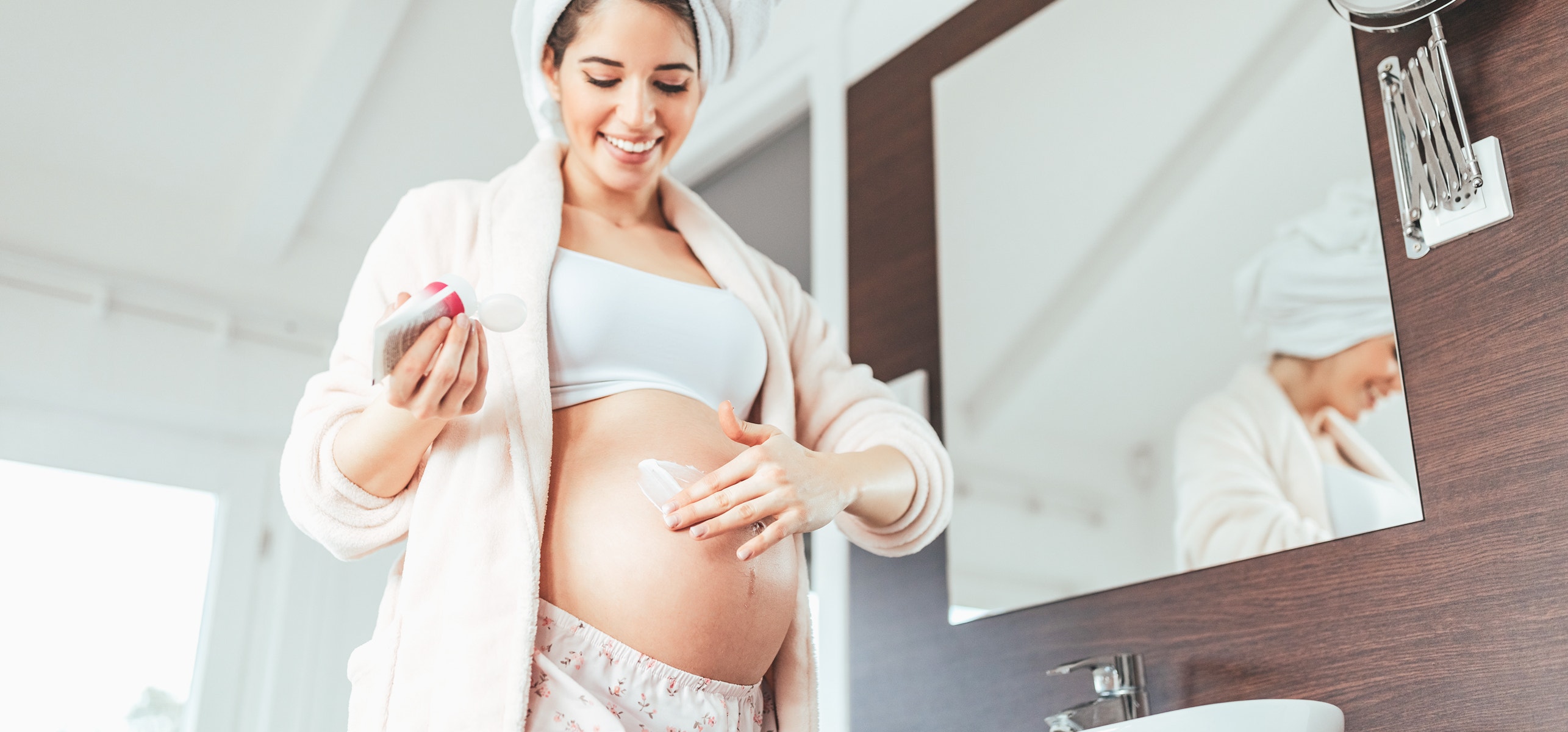

Try these application tips to make the most of your sunscreen, and look for formulas that work with your skin and are easy to apply to ensure proper usage.
Application Tips:
-
Use 1/4 teaspoon for your face (roughly the same as one generous line of product applied along your pointer and middle finger)
-
Apply 1 ounce (shot glass amount) for your body
-
Reapply every 2 hours or after swimming/sweating
-
Apply 15-30 minutes before sun exposure
Managing Common Concerns:
-
White cast: Modern formulations blend better than older versions, but it's always worth trying different brands and products to find the best fit for you
-
Thick consistency: Look for lotions specifically designed for easy application or apply in smaller, lighter layers
-
Dry skin: Choose sunscreens with moisturizing ingredients like shea butter, glycerin or hyaluronic acid
-
Oily skin: Look for lightweight, thin consistency that's oil-free and non-comedogenic, as well as gels or lotions that offer a matte or velvet finish


Expert-Recommended Pregnancy-Safe Options
Dr. Madden and our other lactation consultants seek several characteristics when shopping for pregnancy-safe sunscreens.
Top features to look for:
-
Zinc oxide or titanium dioxide as active ingredients
-
Broad-spectrum protection (from both UVA and UVB rays)
-
Water-resistant formula
-
Fragrance-free for sensitive skin
-
SPF 30 or higher
-
A pricepoint and formula you're comfortable with purchasing and reapplying often
Additional Sun Protection During Pregnancy
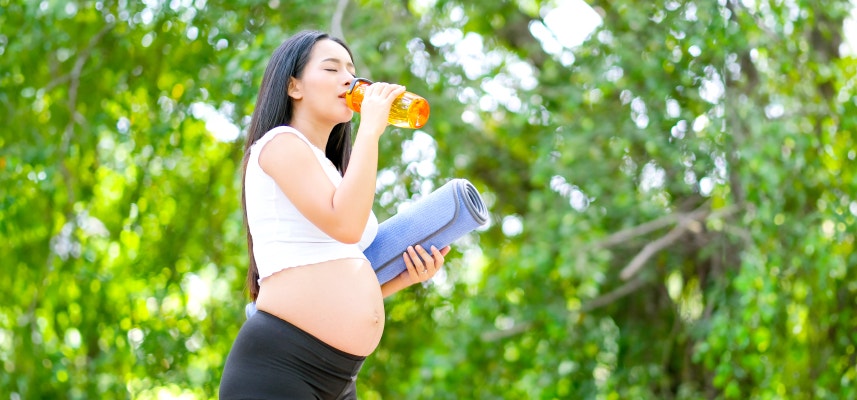

While pregnancy-safe sunscreen is essential, combine it with these strategies for complete protection.
Physical protection:
-
Wear wide-brimmed hats, sunglasses and long, light, loose layers when exposed to sunlight
-
Opt for UPF-rated clothing when possible
-
Seek shade during peak hours (10 AM-4 PM)
-
Stay hydrated by sipping cold water and applying cool compresses to your neck and wrists
-
Rest in an an air-conditioned space
Special considerations:
-
Hormonal changes can cause dark spots and skin pigmentation changes
-
Avoid prolonged sun exposure to prevent overheating
-
Stay hydrated to support your body's cooling system
Understanding Pregnancy Skin Changes
Your skin undergoes significant changes during pregnancy due to hormonal fluctuations. Increased sensitivity means you may burn more easily, and some women develop dark patches (melasma) from sun exposure. Using pregnancy-safe sunscreen consistently helps prevent sun damage and protects against these unwanted changes.
The American Academy of Pediatrics also notes that establishing good sun protection habits during pregnancy benefits your entire family's health.
Ingredient Safety: What the Research Shows
Recent studies have found chemical sunscreen ingredients in breast milk, urine, and blood samples, raising questions about their safety during pregnancy. While research continues, the consensus among healthcare professionals is that mineral-based sunscreens offer the safest option for pregnant people.


Making the Right Choice for You and Baby
With so much information surrounding what pregnant women can and can't use, you may be asking: Is sunscreen safe for pregnancy? As explained in this guide, yes, sunscreen is considered generally safe for pregnancy, however research shows mineral sunscreens sit at the top of the list for effective sun protection when pregnant.
Selecting pregnancy-safe sunscreen doesn't mean compromising on protection. Instead, focus on finding the best sunscreen for you. Our experts recommend mineral sunscreens, which provide effective protection against UV rays while keeping you and your developing baby safe from potentially harmful chemical absorption.
Remember that every pregnancy is unique. If you have specific concerns about ingredient safety or skin reactions, consult with your healthcare provider who can provide personalized recommendations based on your individual needs.
At Aeroflow Breastpumps, we've helped moms navigate pregnancy and postpartum life. Sun protection is just one of the many ways we support expecting mothers in making informed choices for their health and their baby's well-being. All the content in this guide has been medically reviewed by our in-house team of International Board Certified Lactation Consultants (IBCLCs) and healthcare providers to provide you with the most helpful advice during your motherhood journey.
Information provided in blogs should not be used as a substitute for medical care or consultation.




